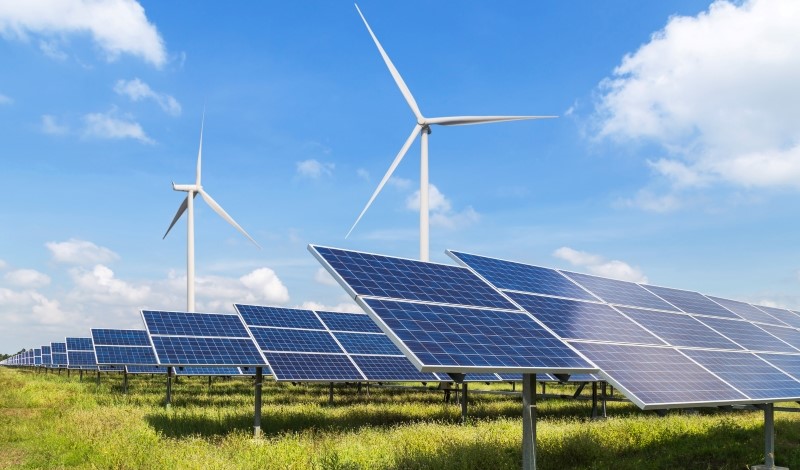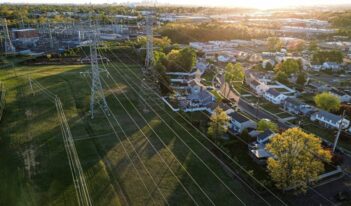
Proponents of electrification often overlook its economic drawbacks, including inefficiencies from subsidizing new technologies.
Electrification is the choice of consumers to use electricity as the source of energy for satisfying their energy-service needs, such as space heating and transportation. It includes the decision of energy consumers to rely on electricity rather than natural gas and other fossil fuels for specific end-use applications. These decisions can include conversion both from natural gas to electricity in an existing home or installation of electric technology in a new home. In transportation, this involves shifting from gasoline to electric vehicles (EVs). In each instance, the consumer must decide which appliance or energy-using technology to purchase.
Proponents of electrification, notably politicians, policymakers, electric utility companies, and environmentalists, prefer it to happen sooner than later and be accelerated by subsidies and other governmental inducements. Some even advocate mandated electrification or natural gas bans to prevent alleged climate catastrophes. Others point to the less lofty goal of revitalizing the electric industry, although electrification could cripple the natural gas and oil industries with significant job losses. Another group argues that electrification is already economical for end uses, such as water and space heating, but that it faces undue barriers.
Many see electrification as essential to combat climate change or even as a free lunch. How could any reasonable person oppose them? Is the United States not facing a climate apocalypse that demands that policymakers take all necessary steps, regardless of the cost, to prevent it from happening?
Under this line of thinking, anyone opposing electrification must be a climate denier or just plain wrongheaded. Proponents’ problem is that they view electrification at the 40,000-foot level, together with the questionable narrative that electrification has reasonable costs and can have more than a nominal effect on climate change. For example, critics of electrification argue that macro studies (which are often relied on to justify accelerate electrification) are not able to accurately calculate the benefits and costs for individual customers located in a specific geographical area. Policymakers should, instead, rely on micro factors, like market characteristics (such as the behavior of energy consumers to make rational decisions) and probable performance of an EV or electric heat pump, rather than on simplistic economic analysis, as the basis for identifying any market failures and taking action.
As with most things, there are two sides, and electrification is no exception. Most champions of electrification fail to consider, or intentionally ignore, its downsides. A major one comprises the cost to households of converting from natural gas and other fossil fuels to electricity—a cost which can amount to thousands of dollars for an individual home. Another downside stems from the efficiency losses in energy markets due to prematurely advancing electrification with subsidies and governmental mandates.
Instead of artificially bolstering electrification with subsidies and mandates, which proponents of electrification suggest, policymakers should allow electric technology to advance without government support. Technology will determine the ultimate success of electrification—not subsidies and other governmental actions that are largely politically driven to serve special interests.
For electric vehicles, the challenges are still daunting and include infrastructure investments in chargers, customer and utility upgrades in distribution systems, and rapid direct-current charging. In addition, consumers will need education and outreach on range anxiety, limited battery storage capability, the availability of charging stations across the country, and demands on the local electric grid.
For heating, economics seems to be the toughest hurdle, as most electric heat pumps are only cost-effective, at least in comparison to natural gas, in areas that have low electricity prices and moderate winters. Further technological improvements may make heat pumps more economically viable and markets, not government handouts, can best achieve the needed innovation in technology.
Whether energy consumers rely on fossil fuels or electricity for their transportation or space-heating needs comes down to a rational choice of what source of energy would best satisfy those needs. With few exceptions, consumers express their choices and make the best decisions for themselves.
Accelerating electrification with government subsidies and mandates is a win-win for electric utilities and environmentalists but a loser for society as a whole. It is hard to ignore the problem of new electric technologies being subsidized by utility customers and taxpayers with only a distinct minority benefitting. It would likely have a regressive effect by disproportionately benefiting higher-income households while being funded by all income groups. “Artificial” electrification can also diminish economic efficiency, especially when it misaligns public policies with actual market-failure problems, such as irrational or uninformed consumers.
Probably the biggest barrier to electrification today derives from its high upfront capital costs. The upfront costs extend the payback period for electrification and diminish its economic appeal. The future holds greater promise for electrification if technical improvements lower the cost of heat pumps, EVs, and other advanced electric technologies, and the surplus supply of natural gas and oil diminishes. A higher-than-minimal penetration of unsubsidized EVs in the range of 15 percent will demand not only continued innovation but also success in outpacing fossil fuels whose supplies and prices portend their economic viability for the foreseeable future.
The rationale for governmental intervention ultimately rests with evidence of the social desirability of electrified technologies to penetrate the marketplace more intensively and rapidly than what would occur under private-market incentives. Such a rationale is ostensibly the core argument for governmental intervention to accelerate the marketability of electric appliances and cars. This sentiment reflects the view that electrification, which would lessen the building of new fossil-fuel infrastructure with long operating lives, must evolve as quickly as possible for the United States to achieve its climate-change goals. Whether these goals merit out-of-market—or governmental—action boils down to a cost-benefit question.
Before moving ahead with any action, decision-makers should therefore ask themselves what benefits electrification offers relative to its costs. It is unlikely that any justification would realize net benefits if the intent of accelerated electrification is solely to mitigate greenhouse gas emissions. It is somewhat puzzling, for example, why a state or other jurisdiction on its own, without cooperation from other states or the federal government or other countries, would overhaul its energy sector (which massive electrification would do) at a high transition cost to accomplish something that would largely benefit the rest of the world—namely, the mitigation of climate change.
One often overlooked topic is the crucial role of research and development in the long-term economic viability of new technologies. There is the question of whether current checks on electrification are primarily technological in nature or the result of the under-adoption of existing cost-effective technologies. The private sector tends to under-invest in innovation and basic research. The reason stems from the public good problem caused by a company’s less-than-full appropriation of the benefits from innovation. This is a form of market failure—a positive externality—that rationalizes government spending on research and development, especially for basic research. The long-term success of electrification will depend critically on new technological developments that will improve its economics and acceptability to a larger segment of society.
In conclusion, proponents of electrification need to do their homework before extolling its wonders. They should especially place greater trust in markets to assure that electrification will be for the good of society—not just for special interests.




